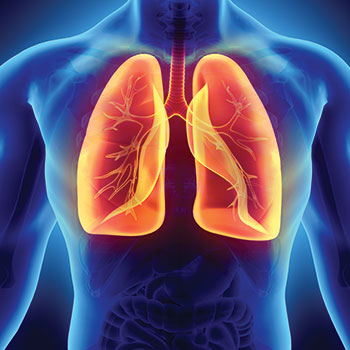Breathe Easier…
…with an LDCT lung screening from Radiology & Imaging Specialists in Lakeland, Florida!
What is LDCT?
LDCT stands for low-dose computed tomography. It’s a significant advancement of CT or “cat” scan technology to enable screening of the lungs at a far lower radiation dose than a typical CT scan.
All X-ray-based technologies emit radiation, and CT uses x-rays to produce superior pictures of the inside of the human body. By keeping the radiation dose as low as possible, more regular screenings are possible to help at-risk patients achieve the early detection of lung disease.
Should I be screened?
If you are a current or former smoker or have other risk factors, the answer may be yes.
Lung cancer is a leading cause of cancer death. One of the reasons why is that lung cancer is too often detected after the disease has already spread throughout the lungs or to other areas of the body.
However, if you are at risk, you may have an Low Dose CT Lung screening to detect—or rule out—lung cancer. It is designed to detect lung cancer at an earlier—and potentially more treatable—stage.
If you believe you should be screened, ask your doctor for a referral to Radiology and Imaging Specialists! Questions? Call us at (863) 688-2334.
Screening programs are beneficial because they can:
- Detect cancer at an earlier stage
- Reduce your chances of dying from lung cancer or other lung disease
- Result in less invasive surgery and with less lung tissue removed
How do I know if I’m at risk?
Some people are at a greater risk of developing lung cancer than others. Anything that increases your chances of developing lung cancer is called a “risk factor.”
Risk factors for lung cancer include:
- Tobacco smoking or contact with secondhand smoke
- Contact with radon
- Contact with asbestos or other cancer-causing agents
- Personal history of certain other cancers
- Family history of lung cancer
- Having had other lung diseases
If you quit smoking your risk will decrease, but it will remain higher than for those who have never smoked.
Who qualifies for a Low Dose CT Lung screening program?
Adults aged 50 to 80 years who have a 20 pack-year smoking history and currently smoke or have quit within the past 15 years.
According to the U.S. Preventive Services Task Force, screening should be discontinued once a person has not smoked for 15 years or develops a health problem that substantially limits life expectancy or the ability or willingness to have curative lung surgery.
What is the Low Dose CT Lung screening test like?
A Low Dose CT Screening is a fast and completely non-invasive test that takes only a few minutes. You simply lie on your back and hold your breath while the donut-shaped machine takes X-ray based pictures of your lungs and chest. A computer then reconstructs these images into very small “slices” that are used by a specially trained doctor (called a radiologist) to review and provide a diagnosis, as well as a report of the findings to your physician.
Why should I visit a RIS imaging center for my Low Dose CT Lung screening?
The radiologists at RIS have been performing Low Dose CT lung screening tests for years. In fact, our screening program has already saved countless lives in Central Florida by providing early detection to at-risk patients.
If no lung problems are detected, your LDCT should be repeated in one year. After two years, your doctor may want you to continue yearly screening, or recommend a different frequency of screening.
Is this test covered by insurance?
Low Dose CT lung screening is generally covered by insurance with a referral from your doctor, and if you meet the criteria. You may also ask your insurance company if the test is covered for you. If it is not, you should know that the out-of-pocket cost for this test is very affordable.
What if the test finds something?
Although most people achieve nothing more than peace of mind, a CT lung screening could reveal a small nodule or mass in the lungs. Most nodules are not cancer, and could be the result of an old infection, scar tissue or another cause. But your doctor may want to monitor the nodule to see if it is growing over time or recommend another imaging test or biopsy.
You might say to yourself, “I’d rather not know.” But considering the advances in cancer treatment and the benefits of early detection, you really would rather know!
What are my next steps?
Your doctor now knows that lung cancer screening with low dose CT lung screening is proven to save lives. Talk to your doctor about your individual risk factors and to help you determine if a lung screening program is right for you.
Questions? Call us at (863) 688-2334.
If you’re at risk for lung cancer, put your mind at ease with this fast, easy and completely non-invasive test from RIS!
The United States Preventative Services Task Force (USPSTF) recommends an annual CT lung screening for people at high risk for lung cancer.


